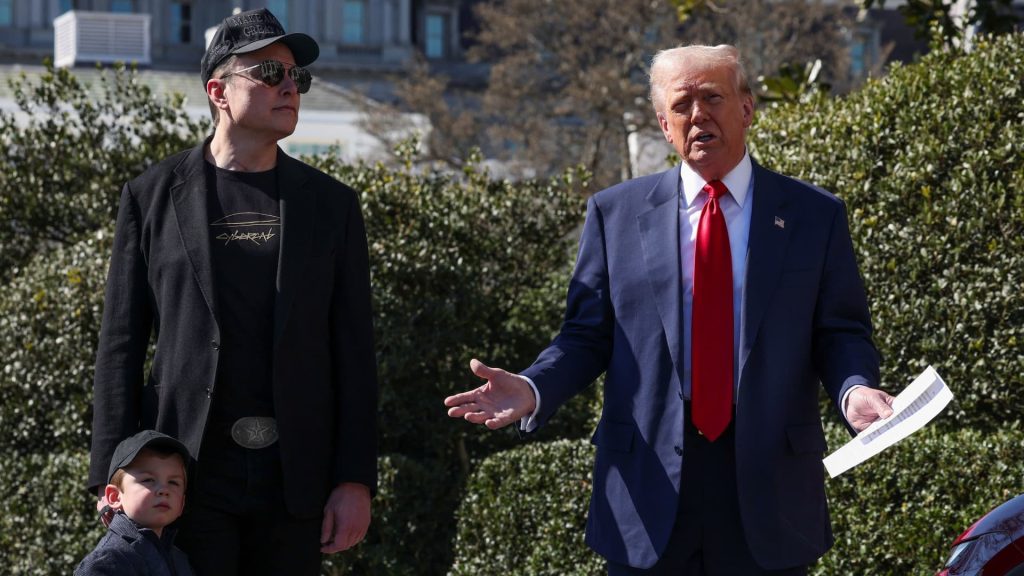Elon Musk receives a golden key from U.S. President Donald Trump in the Oval Office at the White House in Washington, D.C., U.S., May 30, 2025. REUTERS/Nathan Howard
Nathan Howard | Reuters
President Donald Trump on Thursday denied claims that he wants to wreck Elon Musk’s companies and their work with the U.S. government.
“Everyone is stating that I will destroy Elon’s companies by taking away some, if not all, of the large scale subsidies he receives from the U.S. Government,” he said in a post to Truth Social. “This is not so! I want Elon, and all businesses within our Country, to THRIVE, in fact, THRIVE like never before!”
“The better they do, the better the USA does, and that’s good for all of us,” Trump wrote.
The pair have continued a war of words that began with Musk’s opposition to Trump’s signature spending bill and evolved into the Tesla CEO attacking the president’s relationship with convicted sex offender Jeffrey Epstein.
In June, the president threatened to cut some of Musk’s government contracts as the two clashed over the “big beautiful bill” and their relationship unraveled.
Musk previously headed the president’s so-called Department of Government Efficiency and funneled hundreds of millions of dollars into Trump’s reelection campaign.
On Wednesday, the tech CEO said on a second-quarter earnings call that automaker Tesla could experience a “few rough quarters” due to tariff costs and the expiration of federal electric vehicle benefits at the end of September.
Earlier in the day, White House press secretary Karoline Leavitt suggested that the administration doesn’t want federal agencies to work with Musk’s artificial intelligence startup xAI.
The Pentagon had announced July 14 that it had awarded xAI and three other AI companies contracts worth up to $200 million each.
Musk’s aerospace and defense contractor SpaceX also has massive contract exposure in the U.S.
The reusable rocket maker has received over $22 billion from work with the federal government since 2008, according to FedScout, which researches federal spending and government contracts. That includes contracts from NASA, the Air Force and Space Force, among others, but does not reflect contract revenue from confidential initiatives.
The Trump administration recently reviewed SpaceX federal contracts to see if there was potential for cuts, according to The Wall Street Journal. The review found most were critical.
Tesla has reported $12.24 billion in sales of “automotive regulatory credits,” or environmental credits, since 2015, according to an evaluation of the EV maker’s financial filings by FedScout CEO Geoff Orazem and CNBC.
This included $439 million in regulatory credit sales during the second quarter of 2025.
Such incentives were largely derived from federal and state regulations in the U.S. that require automakers to sell some number of low-emission vehicles or buy credits from companies such as Tesla, which often have an excess.
Regulatory credit sales go straight to Tesla’s bottom line.
In its quarterly financial filing Thursday, Tesla mentioned the Trump-backed “One Big Beautiful Bill Act” by name in its Risk Factors.
“The loss of previously available tax credits and carbon offset mechanisms may further negatively impact our financial results,” Tesla’s filing said.
The company added that “provisions of the OBBBA could affect battery cell expenses and impact costs for our consumers, negatively impacting demand.”
WATCH: Canaccord Genuity’s Gianarikas: We may have seen the bottom for Tesla, positive acceleration to come



